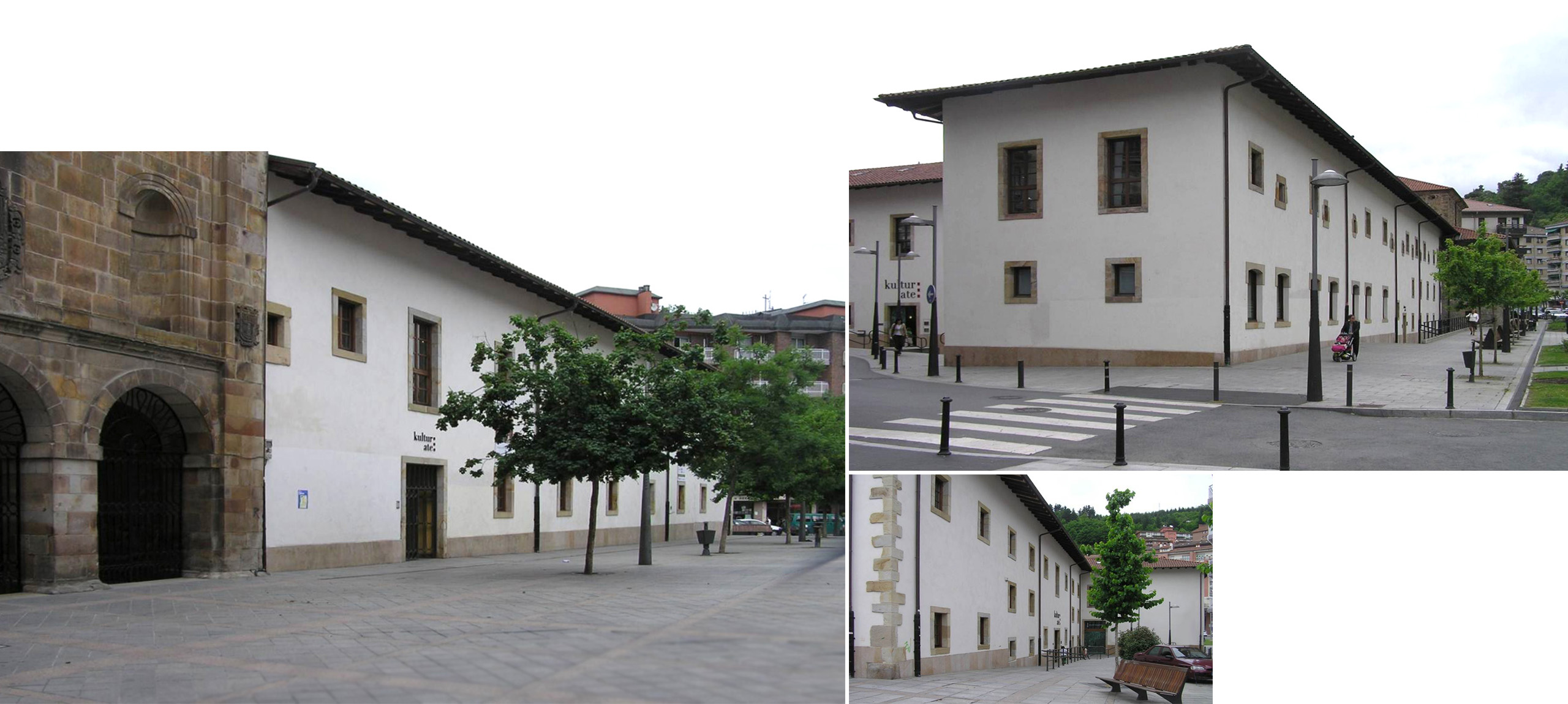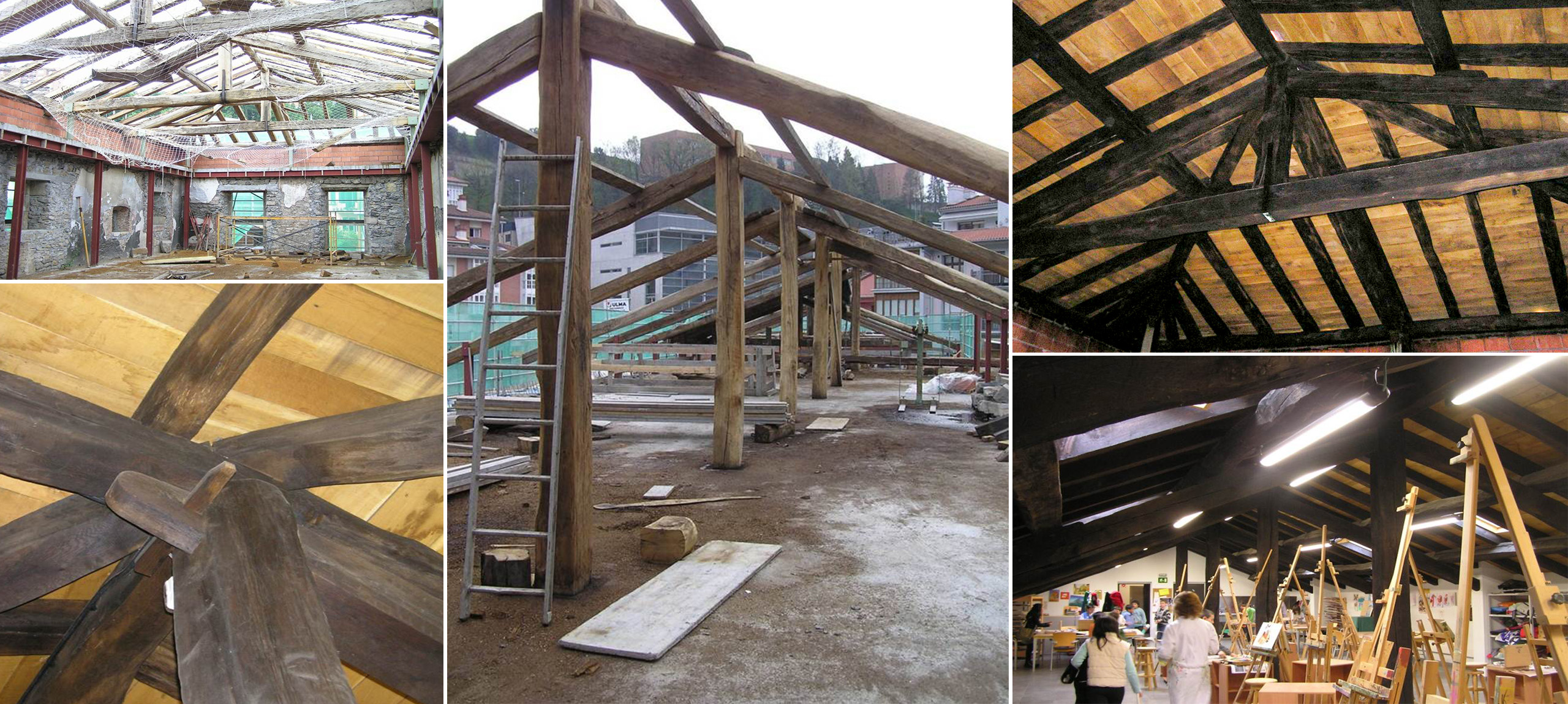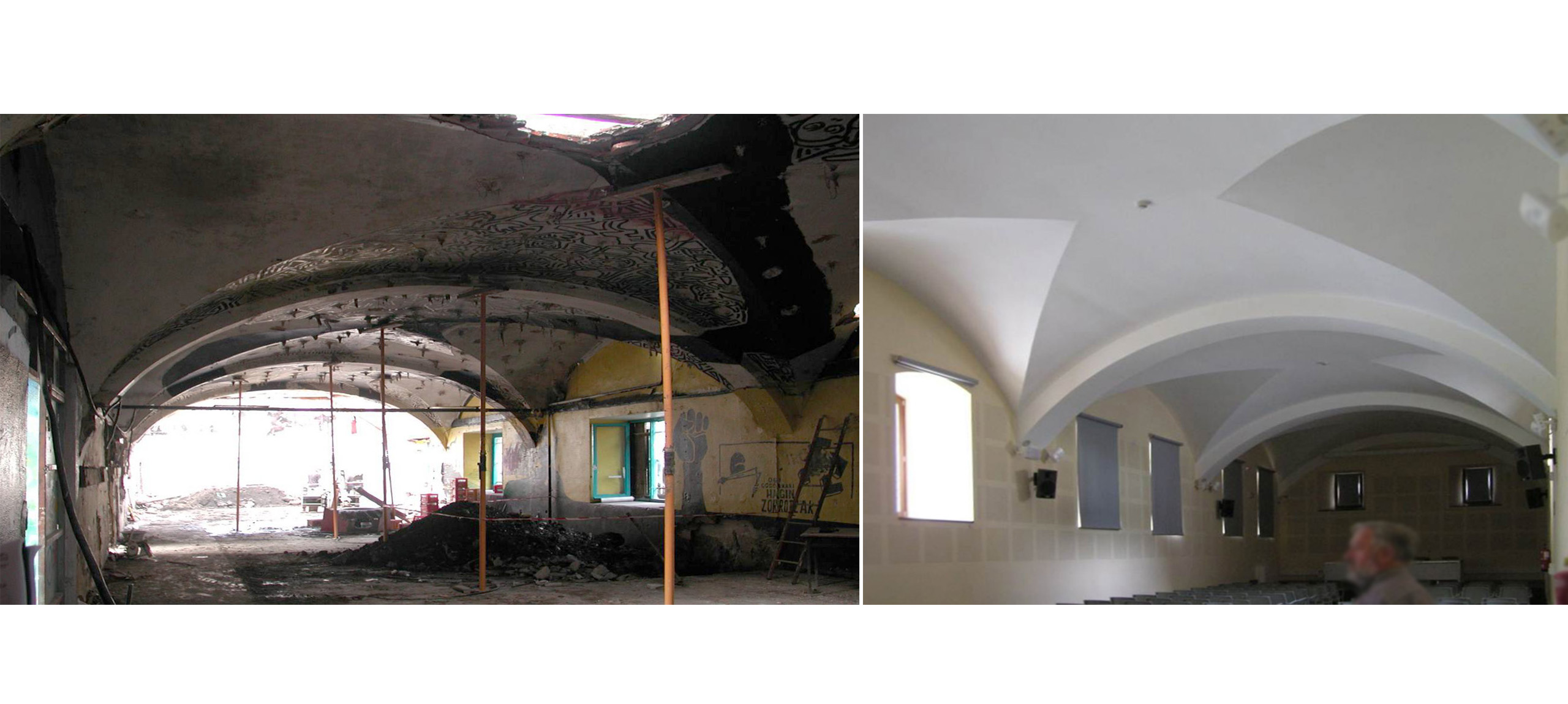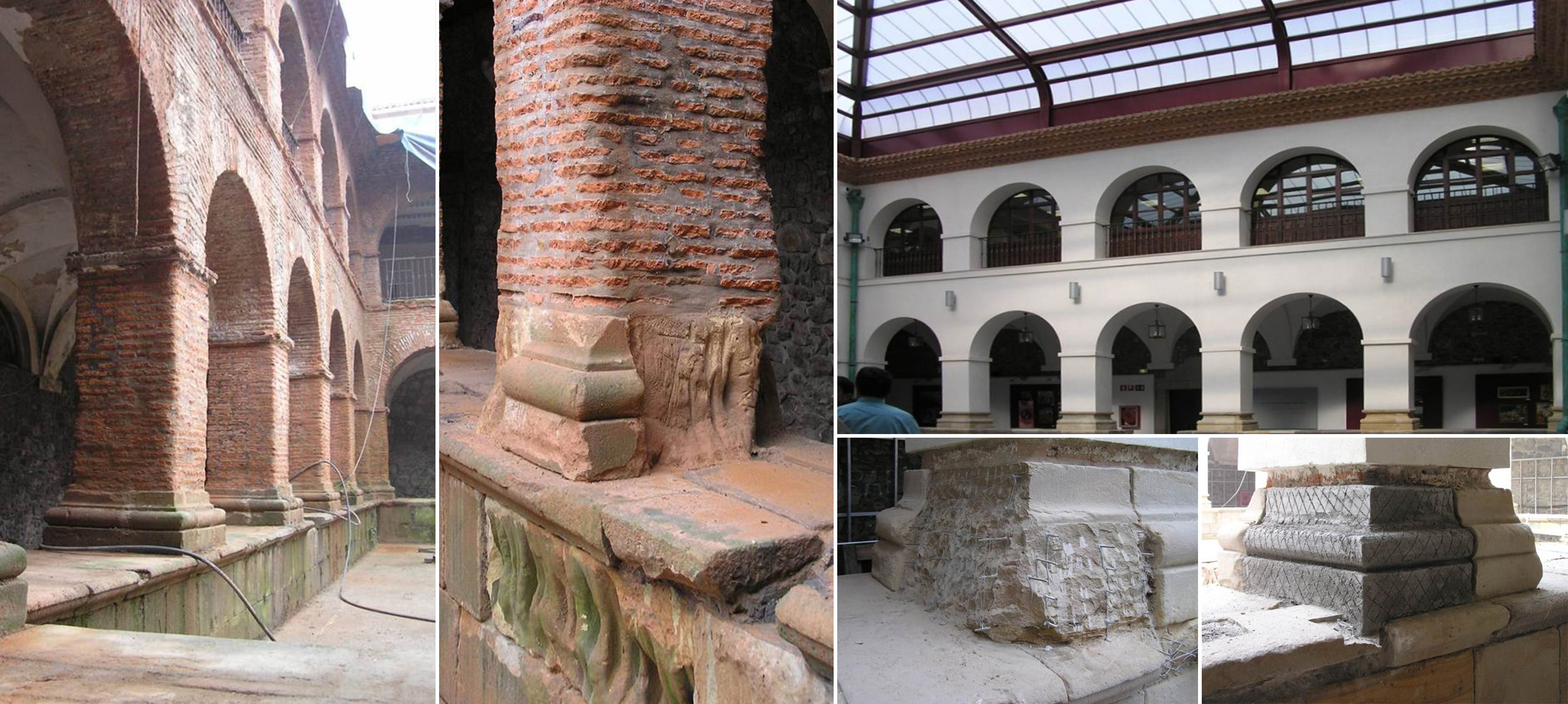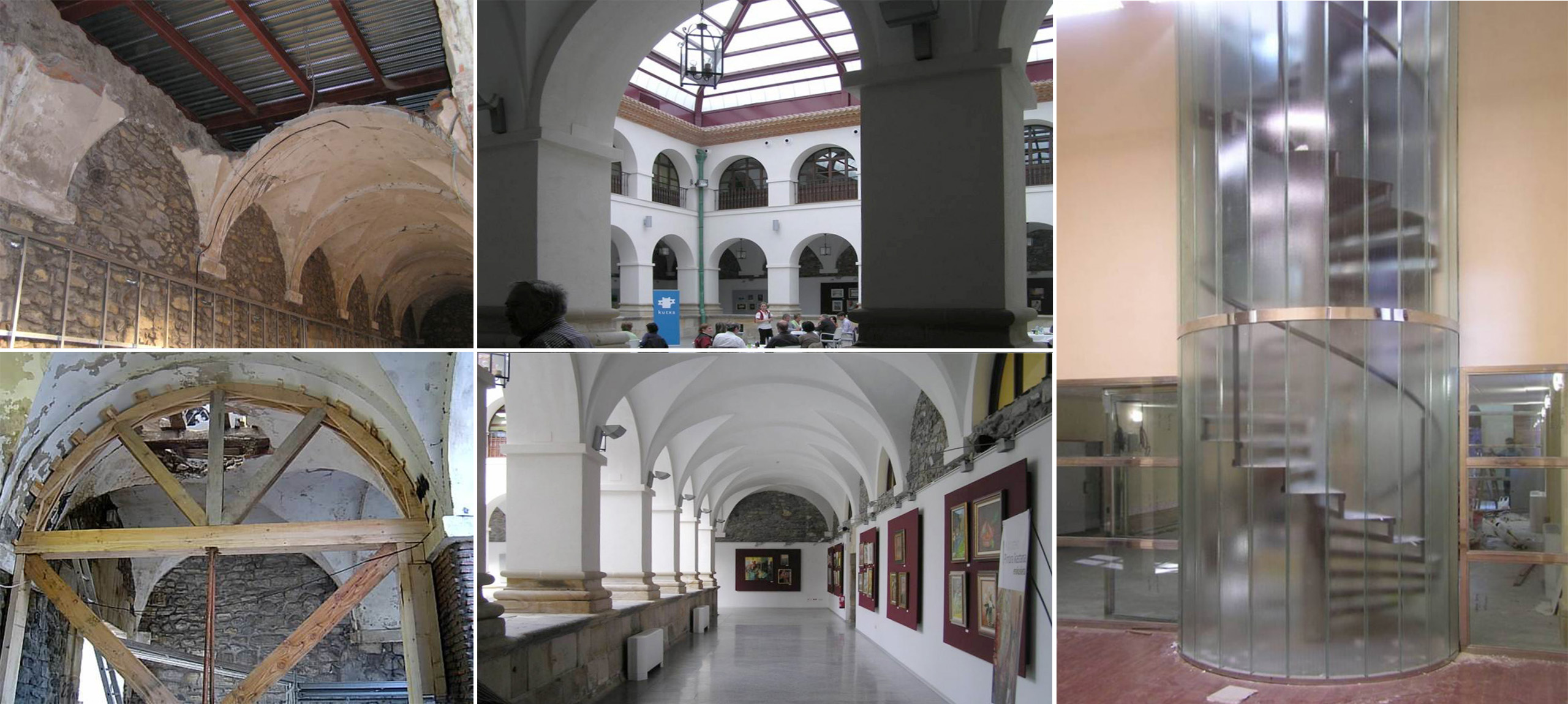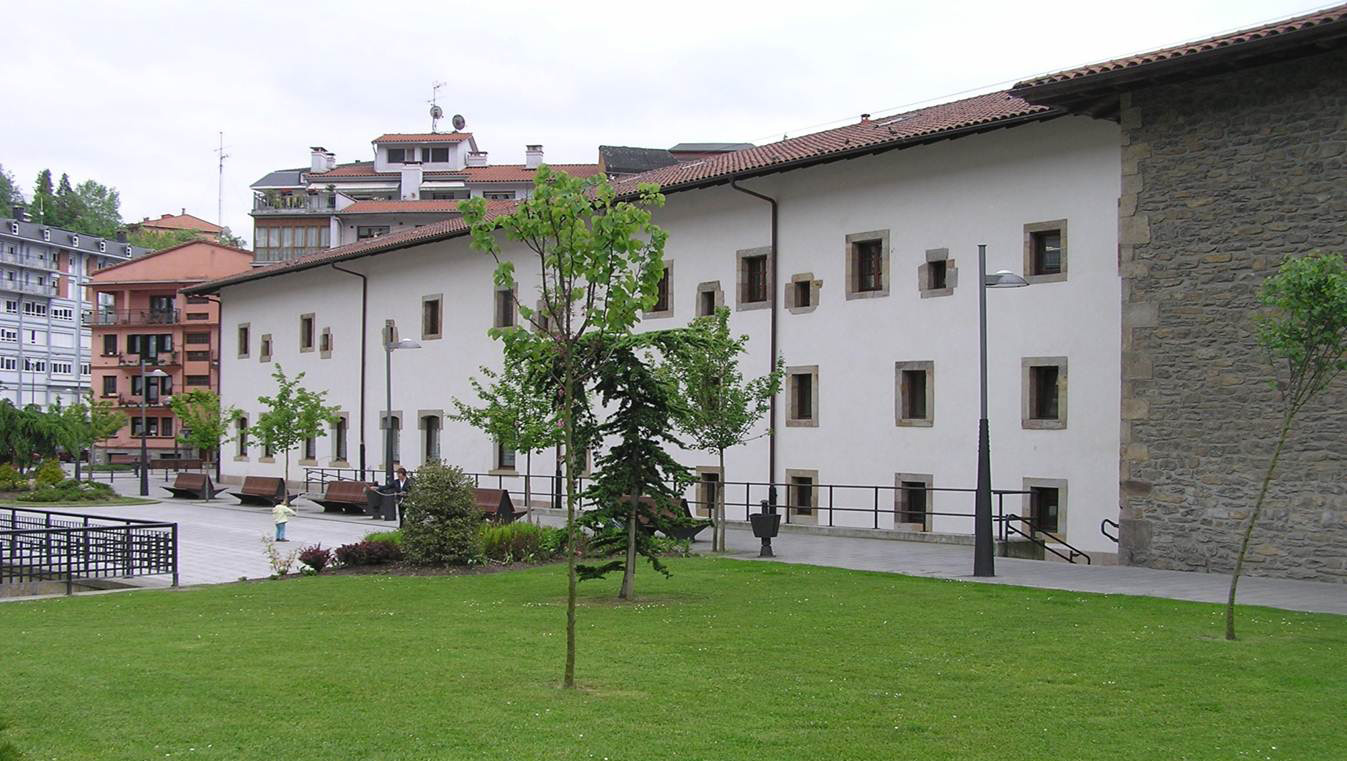
| Restoration of the Ancient Convent of San Francisco | |
| Mondragón, Gipuzkoa, Spain | |
| Structural typology | Rehabilitation Of Buildings |
| Date | January, 2005 |
| Scope | Repair / strengthening project |
| Cliente | Construcciones Amenábar |
| Owner | Ayuntamiento de Mondragón |
In November 2002, once rehabilitation works were already under way governed by a previous project, the need for substantial changes arose. On one hand, the reason for these changes was based on the structural configuration of the masonry walls and the brick pilasters set on a stone base. On the other hand, the new and considerably higher loads which needed to be transferred to an adequate stratum base given the deficiencies detected in the existing foundation.
The best all-round solution to these problems was the underpinning of the foundations employing micropiles and pile-caps onto which the new walls would be set.
The extrados of the vaults was carefully emptied and followed up by the propping of the most affected elements in order to reconstruct the worst of them afterwards.
Special attention was paid to the strengthening of the brick pilasters. In fact, they were not actually strengthened but, instead, perforated micropiles were, very precisely, threaded into the pilasters from a platform constructed above. Hence, the new horizontal structure could be connected to these aforementioned micropiles, freeing the old brick work pilasters from their bearing function.
The best all-round solution to these problems was the underpinning of the foundations employing micropiles and pile-caps onto which the new walls would be set.
The extrados of the vaults was carefully emptied and followed up by the propping of the most affected elements in order to reconstruct the worst of them afterwards.
Special attention was paid to the strengthening of the brick pilasters. In fact, they were not actually strengthened but, instead, perforated micropiles were, very precisely, threaded into the pilasters from a platform constructed above. Hence, the new horizontal structure could be connected to these aforementioned micropiles, freeing the old brick work pilasters from their bearing function.


